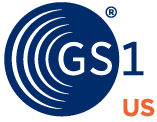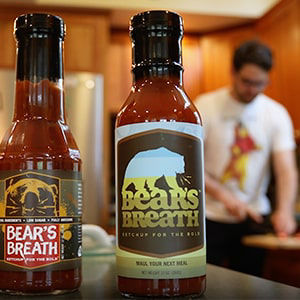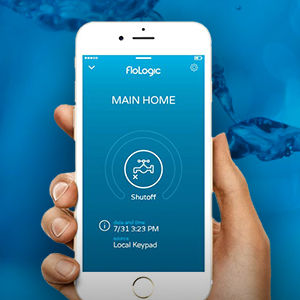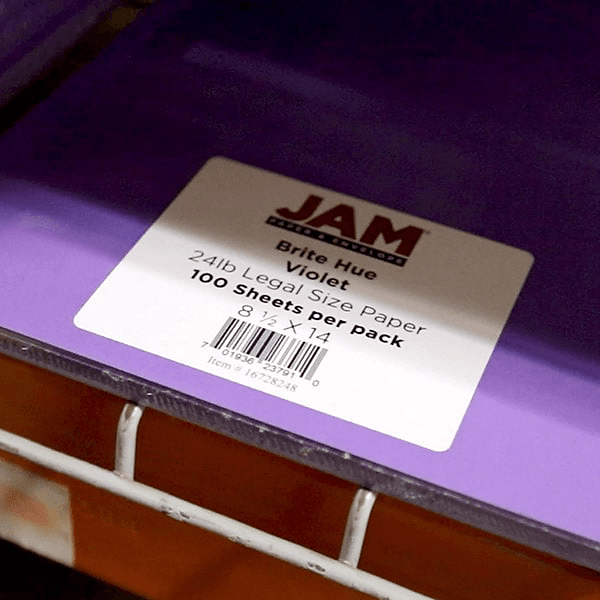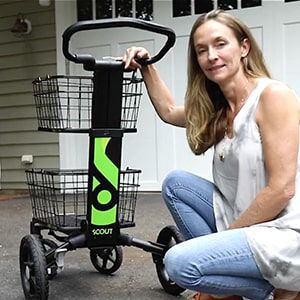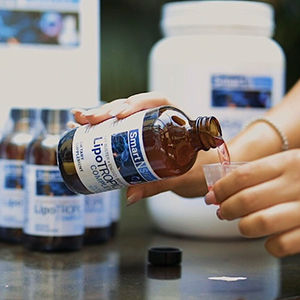Going it alone may work to develop the original product idea. But no one builds a successful business and achieves sales targets without help – growth requires working with partners at every level of the upstream and downstream supply chain. These partnerships help brands move beyond the daily struggles of keeping the lights on to building sustainable business models.
-
Partners help brands understand the retail landscape and multiply their product development and sales efforts. Our research ‘From product to profitability’ (see ‘Research methodology’) identifies what makes partnerships valuable to brands looking to scale up: growth leaders demonstrate the benefits of building collaborative relationships. These brands are far more likely to lean on external partnerships to move the business forward than their less successful counterparts (Figure 1).
Growth leaders (those who have achieved more than 25% growth in the past year) demonstrate the benefits of building collaborative relationships and are far more likely to lean on external partnerships to move the business forward than laggards (those who have experienced revenue declines in the past year) (Figure 1).
They survey findings point to a strong correlation between growth and the nature of external relationships. Growth leaders are about three times more likely than Growth laggards to use a business advisor, consultant, or retail broker; to work with software providers (like ERP and supply chain management solutions); and to use barcode services like printing and labelling. By comparison, growth laggards are four times more likely than leaders to have zero support from external partners.
“Brands need to pay attention to the the fact that they’re not able to do everything. Outside of building the right product, it’s common sense to find a partner to help scale the business,” says Peter Edlund, chief solutions evangelist at DiCentral, a global provider of supply chain solutions.
Providing product information, understanding your customers and diversifying your sales channels are key elements in a retail strategy. Brands that recognize this look for external partners to ensure they’re getting it right the first time. Sixty-eight percent say that working with an external partner has improved their understanding of product listings and the potential impact it can have on their business. And those with a diverse sales channel mix are even more convinced of the benefits: 83% of brands that sell via national retailers and online marketplaces understand this critical role of external providers, compared to only 45% of those that don’t sell into either of these two channels.
Looking ahead at the next 12 months, brands are prioritizing building partnerships. While one in four companies in our survey say a lack of distributor partnerships is one of the top three challenges they face, growth leaders are more than twice as likely as growth laggards to make partnering with a distributor a top priority.
In addition to building vital partnerships to support the business, small brand owners turn to others for help – including industry and professional groups and family members (Figure 2).
“Retail brokers have educated me on the retail process. Understanding how buyers think and what their needs are is really helpful,” says Erik Elfstrum, CEO of PureLyft.
“It’s critical to have UPC codes that work in the big retailer chains,” says Steve Lange, CEO of personal care brand It’s All Good. “You can sell on an online marketplace with your own internal code to track things. But once you get out into the retail world everything is based on UPCs.”
Right Support, Right Time
Finding the right partner can be a challenge for some small brands. Especially because many small companies are started for personal reasons like passion and skills, rather than because they specifically fill a gap in the market (Figure 3). Following a passion is a great reason to start a business, but many entrepreneurs who come from outside the consumer product and retail sphere lack connections and a deep understanding of how the industry works.
“I don't know anyone in the industry with the knowledge,” says Ronnie Cage, founder of Roundball Rags. “I would love to talk to somebody who could help me get from point A to point B. That’s the number one issue, after money, and right up there with having the right product.”
There are many sources offering support, including solution providers with the knowledge and experience to accelerate the growth trajectory of small brands.
“Small brands are saddled with the challenge of providing all of the base product information as well as the operational data, in the format that the retailer's asking for it,” says Michael Hauck, director, product management at Salsify. “A solution provider can take all of that initial heavy lifting and leave small brands to focus on what's going to help the product sell.”
“Small brands are saddled with the challenge of providing all of the base product information as well as the operational data, in the format that the retailer's asking for it,” says Michael Hauck, director, product management at Salsify. “A solution provider can take all of that initial heavy lifting and leave small brands to focus on what's going to help the product sell.”
Partnerships provide guidance and support for small brands, and supplement the limited time and resources of the business owners. Strategically identifying gaps in existing resources and expertise, then finding partners to fill those gaps is what enables small brands to reach new customers, drive growth, and position themselves to become truly competitive and thrive in their market.
Small Business Spotlight
Explore Member Growth Stories
-
JAM Paper
Family owned and operated since 1955, JAM Paper & Envelope offers a wide range of distinctly colorful paper products.
